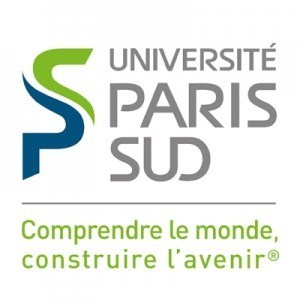Photos of university / #Princeton
The Princeton University Astrophysics program offers a comprehensive and rigorous curriculum designed to provide students with a deep understanding of the fundamental principles governing the universe. This program integrates theoretical foundations, observational techniques, and advanced computational methods to prepare students for careers in research, academia, or industry related to space sciences. Students embarking on this program will explore a wide range of topics, including stellar astrophysics, cosmology, galactic dynamics, planetary science, and high-energy astrophysics. The program emphasizes critical thinking, quantitative analysis, and hands-on experience through laboratories, research projects, and collaborations with leading scientists. Students have access to state-of-the-art observatories, computational facilities, and a vibrant academic community that fosters innovation and discovery. The curriculum is designed to adapt to the rapidly evolving field of astrophysics, encouraging students to engage with recent developments, publish original research, and contribute to our understanding of the universe. Starting from foundational physics and mathematics courses, students progress to specialized classes in astrophysical phenomena, data analysis, and theoretical modeling. The program also offers opportunities for interdisciplinary research, integrating insights from physics, astronomy, and other related fields. Graduate students have the chance to work closely with faculty mentors on groundbreaking projects, participate in seminars and workshops, and present their findings at national and international conferences. Upon completion, graduates will be well-equipped to pursue further studies in doctoral programs or to enter professional environments where their analytical, technical, and scientific skills will be highly valued. The Princeton University Astrophysics program is committed to fostering an inclusive, collaborative, and intellectually stimulating environment that nurtures the next generation of astrophysicists and space scientists.
PREREQUISITES: Students interested in majoring in astrophysics are required to complete the following courses during their 1st and 2nd year
- Physics 103 or 105: Classical Mechanics
- Physics 104 or 106: Electromagnetism
- Physics 207 or 205: Advanced Mechanics
- Astrophysics 204: Topics in Modern Astronomy (strongly recommended)
- Mathematics 103 and 104: Calculus
- Mathematics 201 or 203 or 218: Advanced Multivariable Calculus
- Mathematics 202 or 204 or 217: Linear Algebra
REQUIRED COURSES: Eight upper level courses are required for completing an Astro major.
(a) Students should complete at least three of the following four courses:
- Astrophysics 301: General Relativity
- Astrophysics 303: Modeling and Observing the Universe: Research Methods in Astrophysics
- Astrophysics 401: Cosmology
- Astrophysics 403: Stars and Star Formation
(b) Students should complete three of the following four courses:
- Physics 208: Principles of Quantum Mechanics
- Physics 301: Thermal Physics
- Physics 304: Advanced Electromagnetism
- Physics 305: Quantum Mechanics
(c) Students may select among the following (or other courses) to complete their eight required courses:
- Physics 312: Experimental Physics
- Physics 403: Mathematical Methods of Physics
- Physics 405: Modern Physics I: Condense-Matter Physics
- Physics 406: Modern Physics II: Nuclear and Elementary Particle Physics
- Physics 408: Modern Classical Dynamics
- Mathematics 301/MAE305: Mathematics in Engineering I (ODE's).
- Mathematics 302/MAE306: Mathematics in Engineering II (OPDE's, complex analysis).
- Mathematics 317: Complex Analysis
- Mathematics 327/328: Differential Geometry
- Geology 427: Introduction to Terrestrial and Planetary Atmospheres
- Mechanical and Aerospace Engineering 341: Space Flight
- Mechanical and Aerospace Engineering 342: Space System Design
- Other upper-level science or math courses
(d) Other course selections or replacements allowed with departmental approval.
Recommended Courses in addition to the above:
- Computer Science 126: General Computer Science
- Math 309/ORF 309: Probability and Stochastic Systems
- Mechanical and Aerospace Eng. 222: Mechanics of Fluids
- The Common Application or the Universal College Application
- Princeton Supplement
- Transcript
- School Report
- Guidance Counselor Letter
- Two (2) Teacher Recommendations
- SAT with Essay or ACT with Writing
- Two (2) SAT Subject Tests (recommended, but not required)
- TOEFL, IELTS Academic or PTE Academic (nonnative speakers of English without 3 years of high school in English)
The financing studies of the Astrophysics program at Princeton University are supported through a combination of fellowships, research assistantships, teaching assistantships, and departmental scholarships. All admitted students are considered for these funding opportunities, which typically cover full tuition and provide a stipend to assist with living expenses. The university's financial aid policies aim to ensure that qualified students can pursue their studies without undue financial hardship. Funding is often guaranteed for the duration of the program, contingent upon satisfactory progress and research performance. In addition to university-based support, students may have access to external fellowships and grants from organizations such as the National Science Foundation or NASA, which can supplement their funding or support specific research projects. The department encourages students to apply early for various funding sources and provides assistance throughout the application process. International students are also eligible for the same funding packages as domestic students. Students are advised to consult the university's official financial aid website and the department's administrative office for detailed and up-to-date information on available funding opportunities, application procedures, and eligibility criteria. Overall, Princeton University is committed to providing comprehensive financial support to its astrophysics students, enabling them to focus on their research and academic development.
The Astrophysics program at Princeton University offers a rigorous and comprehensive curriculum designed to prepare students for research and careers in the fields of astronomy and astrophysics. This program combines advanced coursework, extensive research opportunities, and access to world-class facilities and faculty members renowned for their contributions to understanding the universe. Students in the program are encouraged to develop a deep understanding of physical principles governing celestial phenomena, such as stellar evolution, cosmology, galactic dynamics, planetary sciences, and observational techniques.
The curriculum typically includes courses in classical mechanics, electromagnetism, quantum mechanics, statistical mechanics, as well as specialized astrophysical courses covering topics like stellar structure, high-energy astrophysics, and cosmology. Students also engage in research projects under the guidance of faculty mentors, allowing them to contribute to ongoing scientific investigations. The program emphasizes a combination of theoretical knowledge and practical skills, including data analysis, computational modeling, and observational methods.
Princeton University’s Astrophysics program provides students with access to advanced telescopes, observatories, and computational resources. Opportunities for collaboration with leading scientists through seminars, workshops, and conferences are integral components of the educational experience. Graduates of the program are well-equipped to pursue PhDs, postdoctoral research, or careers in academia, government agencies, or the private sector related to space sciences and technology. The program’s reputation benefits from Princeton’s rich history of contributions to astronomy and physics, fostering an environment that promotes innovative research and academic excellence in astrophysics.
Please note that for detailed information about specific admission requirements, degree structure, and career prospects, prospective students should consult the official Princeton University website or contact the university’s admissions office directly.










